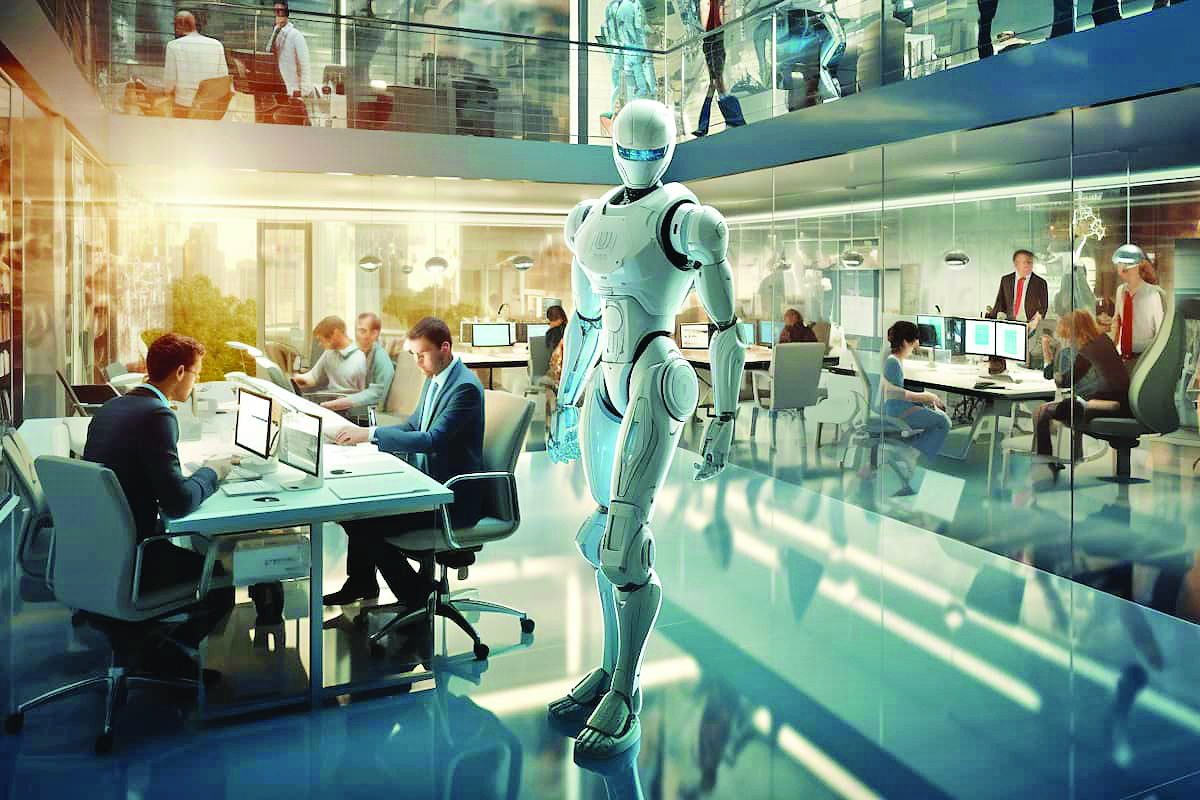
The convergence of Web 3.0 and artificial intelligence (AI) is set to radically transform the corporate world. These technologies are not just reshaping our tools and processes but are also redefining the very nature of how we work, collaborate, and drive organizational success.
What implications will this shift have on the workforce? Let’s explore today, into the exciting prospects and challenges that lie ahead in the future of corporate employment.
Unpacking Web 3.0 and AI
Before diving into the impacts, let’s clarify what we mean by Web 3.0 and AI:
Web 3.0: Often associated with the blockchain, Web 3.0 represents the next phase of the internet’s evolution, emphasizing decentralization, openness, and greater user utility. It’s about creating more transparent, user-driven experiences that harness the power of peer-to-peer technologies.
AI: Artificial intelligence refers to systems or machines that mimic human intelligence to perform tasks and can iteratively improve themselves based on the information they collect.
Transformation of Corporate Roles
Enhanced Decision-Making with AI
AI’s integration into the corporate sphere is enhancing decision-making processes. AI algorithms can analyze vast datasets far more efficiently than humans, providing insights that can lead to more informed and strategic decisions.
Future corporate roles will likely shift towards interpreting AI-generated data and implementing data-driven strategies.
Decentralization with Web 3.0
Web 3.0 introduces a decentralized model where power and control are distributed among all network participants rather than centralized in a single authority. This could lead to more democratic workplace structures. For instance, blockchain technology can enable transparent voting systems for decision-making processes, potentially altering traditional hierarchies in corporate settings.
New Skill Sets Required
Technological Fluency
The demand for digital literacy is set to skyrocket. Understanding blockchain, smart contracts, AI, and analytics will become critical. Corporate training programs will need to adapt, focusing on upskilling employees to navigate new technologies efficiently.
Soft Skills in the Limelight
As machines take over more routine tasks, soft skills such as creativity, emotional intelligence, and interpersonal communication will become more crucial. Employees will need to focus on skills that AI cannot easily replicate.
Job Creation and Automation
Roles That AI and Web 3.0 Will Create
New job titles and roles are likely to emerge. For example, we might see an increase in demand for AI ethicists, who ensure AI technologies are used responsibly, and blockchain analysts, who interpret blockchain data to glean business insights.
The Double-Edged Sword of Automation
While AI and automation promise efficiency and cost reduction, they also pose a risk of job displacement. Routine and manual jobs are the most vulnerable to automation. However, history shows that technology can be a net job creator. Adapting to changes rather than resisting them will be key.
Shaping a Future-Ready Workforce
Education and Continuous Learning
To prepare for future demands, educational institutions and corporate training programs must prioritize new curricula and learning modules that address upcoming technological needs.
Policy and Regulation
As Web 3.0 and AI redefine job structures, policy makers must craft regulations that protect workers while encouraging innovation. This includes rethinking labor laws to support a more flexible, tech-driven workforce.
Conclusion
The future of corporate jobs in the Web 3.0 and AI era is not just about grappling with new technologies but also about adapting to a rapidly changing economic and social environment.
As we embrace these changes, the focus should be on leveraging technology to enhance our capabilities and ensure a balanced approach to innovation and employment. In this evolving landscape, adaptability, lifelong learning, and resilience are more than just assets; they are imperatives.
Abhishek Anand is the founder of Skill Bud Technologies Pvt. Ltd., a tech company that specializes in Web 2.0, Web 3.0, NFT, Metaverse and digital marketing. He is also an Author, Speaker, Mentor and helps startups & businesses grow with technology.